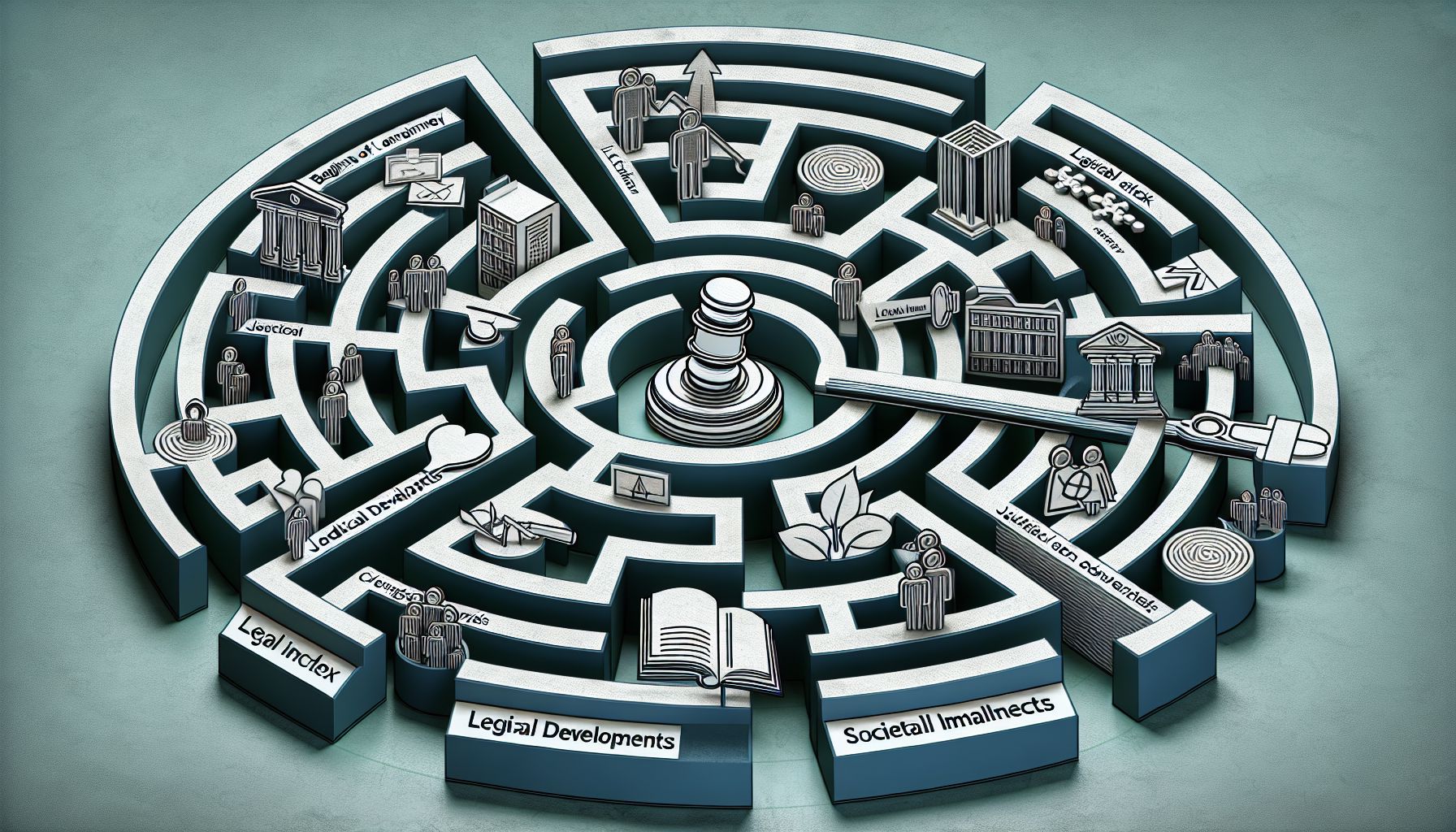Navigating the Maze of Modern Law: Understanding Recent Judicial Developments and Their Societal Impact
In an era where societal norms are rapidly evolving, the law often finds itself in a relentless game of catch-up. New legal precedents and legislation don’t just dictate the do’s and don’ts; they reflect and shape the moral and cultural ethos of our time. As we grapple with technological advances, environmental calamities, and global social movements, the legal landscape morphs, challenging our understanding of justice and equity. This dynamic interplay offers both opportunities for advancement and potential pitfalls.
 The past years have witnessed a series of landmark cases and legal reforms that have sent ripples across society. For instance, consider the groundbreaking decisions in digital privacy, where courts across the world have been defining the boundary between state surveillance and personal freedoms. The introduction of GDPR in Europe and similar regulations elsewhere has shifted the onus of data protection to the custodians of our digital footprints, empowering individuals with greater control over their personal information.
The past years have witnessed a series of landmark cases and legal reforms that have sent ripples across society. For instance, consider the groundbreaking decisions in digital privacy, where courts across the world have been defining the boundary between state surveillance and personal freedoms. The introduction of GDPR in Europe and similar regulations elsewhere has shifted the onus of data protection to the custodians of our digital footprints, empowering individuals with greater control over their personal information.
Another domain of intense legal evolution is climate law. As the cataclysmic consequences of climate change loom closer, courts are increasingly being solicited to hold governments and corporations accountable. Landmark cases worldwide have seen climate activists use the judiciary to compel policy changes and hold emitters accountable for environmental degradation, setting legal precedents for future ecological litigation.
Furthermore, the #MeToo movement has galvanized an overhaul in workplace harassment laws. New legislation and corporate policies have emerged to address systemic issues of sexual harassment and discrimination. These changes have not only provided recourse for victims but also serve as a deterrent, reshaping workplace culture and power dynamics.
However, such legal progress is not without challenges. Recent pushes for more stringent immigration laws serve as a stark reminder of the volatility of legal landscapes and their capacity to disenfranchise. Court rulings on immigration and citizenship have profound implications on individuals’ lives and have spurred discussions on human rights, national security, and identity politics.
As we peer into the future, one thing is certain: the legal world will continue to evolve at a dizzying pace. Technological advancements, such as AI and biotech, are poised to open a Pandora’s box of legal concerns, ranging from intellectual property disputes to ethical quandaries about AI personhood and genome editing. It is an unending journey through an ever-expanding maze, but one that is essential for maintaining the balance of societal interests.
Our collective challenge is to ensure that as the law evolves, it does so in step with the values of fairness, transparency, and inclusivity. The legal decisions of today are more than just resolutions to isolated disputes; they are the building blocks for the society of tomorrow. Only through careful navigation and a forward-looking perspective can we hope to harness the power of the law to create a more equitable and just world for all.
Read More: The Social Media Tapestry: Weaving the Fabric of Modern Culture

